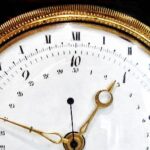The 5-/10-/13-Year Clock and Loss of Dutch Nationality
So what is this 10-Year Clock what you have been reading and hearing about!? And now 13 years?
It’s complicated!
There have been 37 changes to the nationality law to date, 5 of which relate to the so called Clocks and loss of Dutch nationality. There are other ways of losing the Dutch nationality. For example you can in first instance automatically lose your Dutch nationality if you get another nationality without belonging to one of the exceptions. We are not going into these exceptions here but we look at the Clocks and possibility of secondary loss, irrespective of previous exceptions. This is loss of Dutch nationality due to the infamous so called 10-Year Clock, now 13-Years. There is not just one 10-Year Clock, there have been a couple of clocks which could have resulted in you, your family member or ancestor losing his/her Dutch nationality automatically. Often people found out after the fact and the automatic loss was unfortunately often without realising this and unintended. Too late! Or?

5-Year Clock
Law of 28 July 1850 to implement Article 7 (nationality) of the Dutch constitution.
Law in force for the period 28 July 1850 to 30 June 1893
Article 10 states that the Dutch nationality will be lost when a person is resident/staying in a foreign land for five years with the ‘apparent intention’ not to return. If you were on Dutch (government) business it was assumed you would eventuality want to return and would thus not lose your nationality upon this 5-Year clock.

10-Year Clock version 1
Dutch nationality law (WNI) of 1892
Law in force for the period 01 July 1893 to 31 December 1984
Article 7 paragraph 5 states that those adults who are not on government business and resident outside the Dutch territories and colonies, or had property there, for a period of 10 years would lose his/her nationality. This could be avoided by making a statement to a government official declaring to wish to stay a Dutch national. This statement would restart the 10-Year Clock.

10-Year Clock version 2
Dutch nationality law (RWN) of 1985
Law in force for the period 01 January 1985 to 31 March 2003
Article 15 paragraph c stated that those adults residing, outside of the Netherlands territories, in the country they were born in and of which they also had the nationality will after 10 years lose their Dutch nationality. Unless during that time they worked for the Dutch government or an international organisation to which the Netherlands is a member (think UN, NATO, EU, etc), or were the spouse or partner of such employed person. Except for such work or moving to another country there was nothing to stop or restart this 10-Year Clock. As a result many lost, often without realising it, their nationality in or after 1995.

10-Year Clock version 3
Dutch nationality law (RWN) of 1985 changes as of 2003
Law in force for the period 01 April 2003 to 31 March 2022
Article 15 paragraph 1c stated that those adults with another nationality residing outside of the Netherlands territories or the European Union (EU) will after 10 years lose their Dutch nationality. Unless during that time they worked for the Dutch government or an international organisation to which the Netherlands is a member (think UN, NATO, EU, etc), or were the spouse or partner of such person. This 10-Year Clock will reset and restart upon the issue of a new Dutch passport, ID card or Certificate of Nationality, RWN Article 15 paragraph 4 (Note! date of issue counts, not date of application). This 10-Year Clock will reset to zero and pause ‘after’ one year of residency in the Netherlands territories or the European Union (EU), RWN Art 15 paragraph 3. As a result thousands lost their nationality, often without realising it, in or after 2013.

13-Year Clock version 1
RijksWet op het Nederlanderschap (RWN) 1985 changes as of 2003 and 2022.
Law in force for the period 01 April 2022 to date
Except for the 13 years the conditions are the same as the above 10-Year Clock version 3.
Article 15 paragraph 1c states that those adults with another nationality residing outside of the Netherlands territories or the European Union (EU) will after 13 years lose their Dutch nationality. Unless during that time they worked for the Dutch government or an international organisation to which the Netherlands is a member (think UN, NATO, EU, etc), or were the spouse or partner of such person. This 13-Year Clock will reset and restart upon the issue of a new Dutch passport, ID card or Certificate of Nationality, RWN Article 15 paragraph 4 (Note! date of issue counts, not date of application). This 13-Year Clock will reset to zero and pause ‘after’ one year of residency in the Netherlands territories or the European Union (EU), RWN Art 15 paragraph 3.
This change in law from 10 to 13 years met with a bit of criticism from us, interest and non-profit organisations, as well as the permanent Commission for Justice and Security, and Dutch Council of State. We would have preferred to see that the 10/13-Year Clock abolished all together. And this may be happening in the future, see below at Future.
When does the current 10- or 13-Year Clock start ticking for me?
Here we only look at the current 10/13 Year Clock. The 10- or 13-year clock starts ticking when all the conditions are in place, and thus on the date of the last condition.
- Condition 1) You are Dutch and have, or get, another Nationality. (See “other nationality” below)
- Condition 2) You are, or become, an adult. (See “age of majority” below)
- Condition 3) You are, or become, resident outside the European Union.
Thus, when the clock starts differs per person. Some are already adults when they get the other nationality. Others are born with it. Others have lived until recently in the EU, etc.
When does the 10-Years change over to 13-Years for me?
How the clock starts, or started, for you (see above) has not changed per 01 April 2022. With this change of law as per 01 April 2022 the only change is when the clock finishes, when the alarm goes off. Thus, if your clock is ticking before 01 Apr ’22 it will continue to keep ticking. The change of law does not reset and restart the clock for anyone, it merely allows extra time. If your 10-Year clock finishes on 31 Mar ’22 then you’re out of luck. If the 10 years are up on 01 Apr ’22 then you are in luck and can add 3 years.
When does the 10- or 13- Year Clock stop, pause or restart for me?
Here we only look at the current 10- or 13 Year Clock.
- The clock never started ticking for you if you have only lived in the Netherlands or European Union (EU). With Brexit this clock started for those with any other nationality resident in the UK.
- The clock does not tick for minors (see age of majority below).
- The clock resets to zero and pauses when you returned and are permanently resident in the Netherlands or EU for one year. So, the first year back doesn’t count and that clock still ticks.
- The clock restarts on the date of issue of a new Dutch passport, identity card or Dutch Nationality Certificate. Note, date of issue, not date of application. This then gives you another 10 years as of the date of issue. See previous note about this perhaps being 13 years.
Warning!
Getting another (third) nationality will result in automatic loss of your Dutch nationality unless you comply with an exception, irrespective of the 10- or 13-Year clock.
Other Nationality
The 10- or 13-Year Clock considers any other nationality. It makes no difference if it is another nationality than the country you are resident/living in. Example:
- You are Dutch and French and live in the UK, the clock is a risk to you.
- You are Dutch and South African and live in Australia, the clock is a risk to you.
- You are Dutch and Italian and live in Canada, the clock is a risk to you.
- You are Dutch and American, born in Florida and live in New York, USA, the clock is a risk to you.
- You are Dutch and Turkish and live in Turkey, the clock is a risk to you.
The Age of Majority in Dutch History
As these clocks often refer to adulthood it is of course good to know when someone became an adult and the clock could have started ticking. Remember, it is a combination of factors that start(ed) the clock.
| Period | Age of Majority for Dutch Nationality Law |
| 1838 – 1901 | 23 |
| 1901 – 1985 | 21 |
| 01 Jan 1985 – to date | 18 or earlier through marriage |
Residency – Where are/were you really resident?
The Netherlands knows a very bureaucratic civil registry implemented since big brother Napoleon. If you live in the Netherlands you are required to register your residency with the municipality. Foreigners require in addition an immigration status, like elsewhere in the world. However, Dutch civil servants don’t always realise that other countries may not have a civil registry such as in the Netherlands. They may ask for evidence of your foreign municipal registration where your country may not have such a system. Habsburg Legal Services can advise on alternatives. With reference to the 10- or 13-Year Clock we should also point out that the Dutch nationality law does not always look at your registered residency. The Dutch nationality law since 2003 states that it looks at where you are actually resident. Thus, being registered in one country while most of the time actually, legally or illegally, living in another can create challenges or in rare occasions opportunities. In those situations we recommend you get legal advise.
Conclusion – Confusion
As you can see from the clock changes, the law became less flexible in 1985 and the 2003 and 2022 law changes were poor attempts to rectify this. As the Dutch government mostly failed to inform its citizens of these changes in 1985 and 2003 many were not aware of the new workings of these Clocks. Confusion was rife and this included consular and municipal officers who have been known to take someone’s passport away in error, or issue a passport in error. Incorrect information and assumptions in the public domain and by government officials have sometimes contributed to loss due to one of these so called 10-Year Clocks. Unfortunately, the loss in Dutch law was and is automatic and there was no regret or correction possibility in law. The Tjebbes verdict of early 2019 however resulted in the current EU Proportionality test and is uncommon in allowing a retrospective correction. This is law as per 01 April 2022 but by court order could be used prior to this codification date. (The initial proportionality test doesn’t involve court proceedings and is handled by the Ministry of Foreign Affairs with advice from Justice). There are also other ways to get the nationality back so don’t hesitate to contact us to see what is possible for you or your family member.
The Future, possible Abolition of the Clock, 20?? to ??
Politics and justice. In recent developments the Dutch government has in its Dec 2021 coalition agreement announced that they (finally) agree that the Clock is unreasonable. They have advised to want to abolish this Clock and make it possible for those who lost their nationality, since version 3 of the 10-Year Clock (01 April 2003-to date), to be given an opportunity to get the nationality back. There is at this time no proposed change in law and the devil will be in the detail of the law after it has changed. The required change of law can perhaps take years, or..?. Because it will require the Dutch parliament to approve, it may take its time, the proposal may be changed, or may not happen at all. We will update our clients if and when the law is changed. For now, please note that the 10- or 13-Year Clock is still active and a potential risk to you.
What are you trying to sell here?
Please note that Habsburg Legal Services assists its paying clients on a commercial basis in resolving such (historical) issues. However, the purpose of this page is to warn people and avoid them becoming victim of unwanted and unaware loss of Dutch nationality. We would rather you did not lose your nationality at all, and thus prefer not to have you as a customer. However, if unfortunately it is too late and you do need help, no better than us.